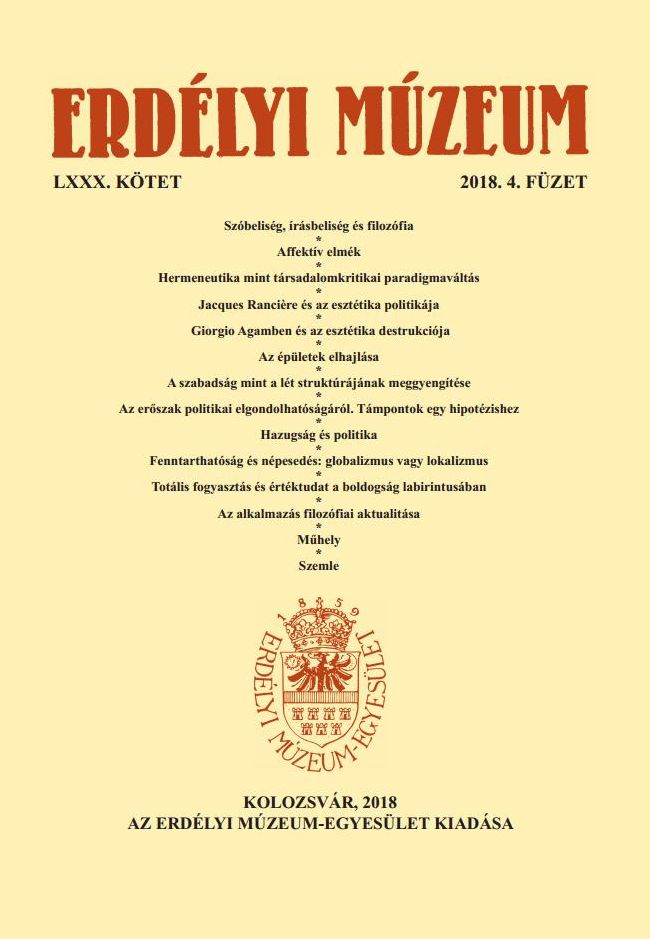Jacques Rancière és az esztétika politikája
Jacques Rancière and the Politics of Aesthetics
Author(s): Gizella HorváthSubject(s): Philosophy, Aesthetics, Political Philosophy, Contemporary Philosophy
Published by: Erdélyi Múzeum-Egyesület
Keywords: art; aesthetics; modernity; autonomy; heteronomy; emancipation; aesthetic revolution; sensible experience;politics of aesthetics;
Summary/Abstract: Jacques Rancière is one of the most often occurring contemporary references in the discourse on art, being a favourite of art theorists, curators and critics of art. Rancière’s success can be explained, on one hand, by „the social turn” in art (Claire Bishop), on the other hand by the bold reinterpretation of basic terms such as aesthetics, modernity, autonomy and heteronomy of art. Rancière’s main concern is the emancipation, and in this perspective he reinterprets modernity as an aesthetic revolution which ‒ for the first time ‒ makes it possible for sensible experience, including art, to be accessible to the demos, that is, to everyone. Rancière’s sources of inspiration are Schiller, Flaubert and Jacotot – who all have the same message: hierarchy can be overthrown, the world can be seen, heard, spoken about by anyone. The aesthetic revolution means the overthrow of hierarchies ‒ and in this sense, since then the aesthetic revolution has been a permanent revolution.
Journal: Erdélyi Múzeum
- Issue Year: LXXX/2018
- Issue No: 4
- Page Range: 40-55
- Page Count: 16
- Language: Hungarian

